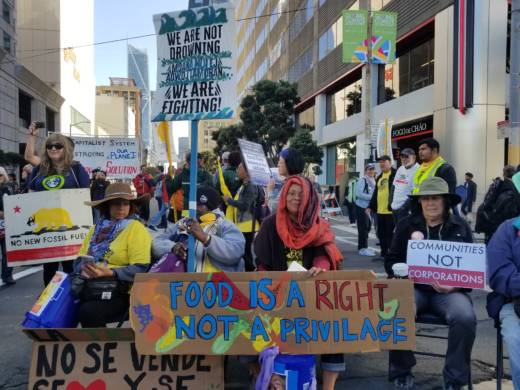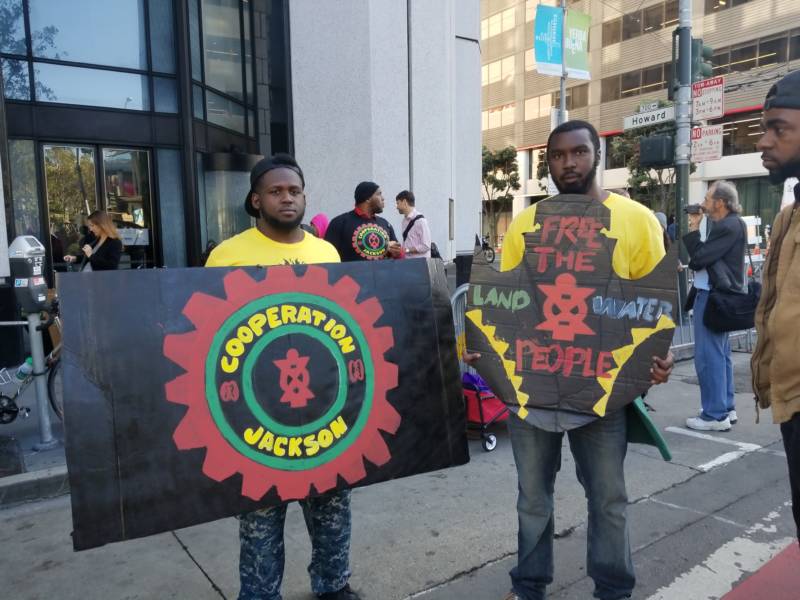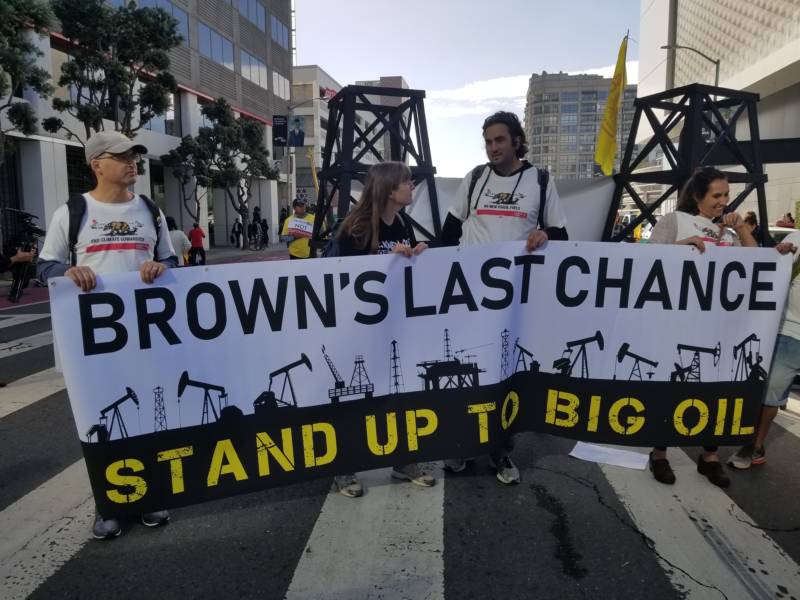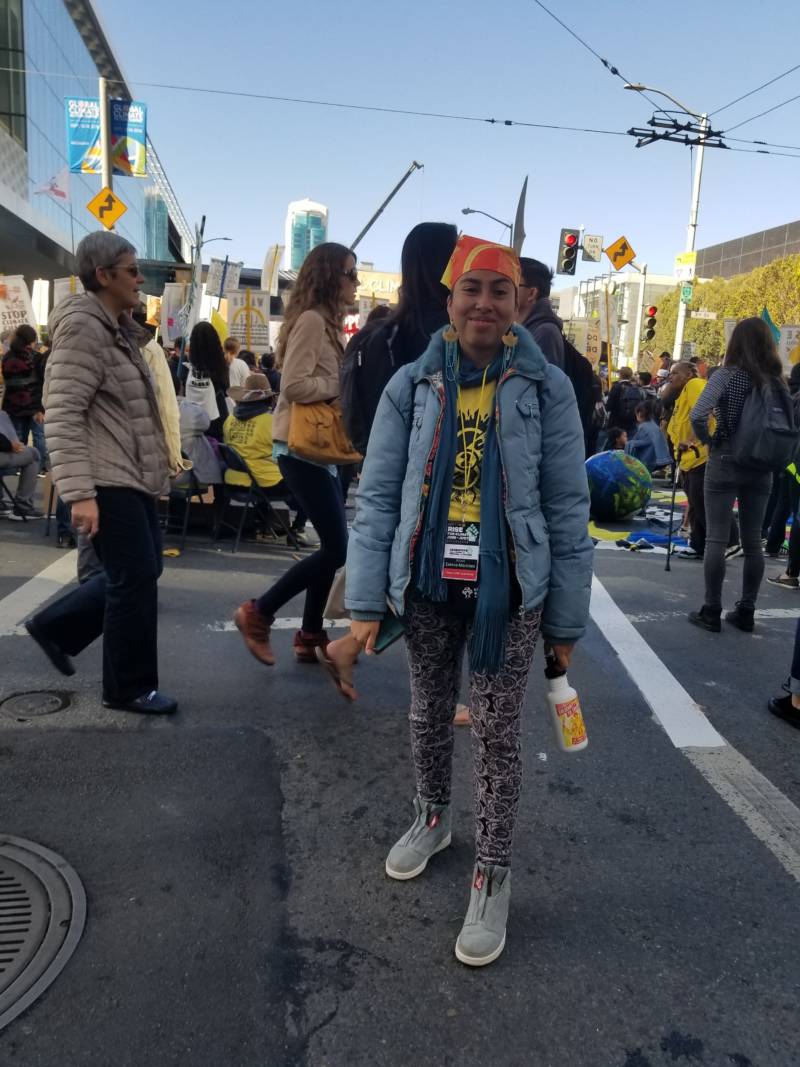Protesters who gathered in San Francisco last week for the Global Climate Action Summit are promising to continue fighting for the end of the fossil fuel era. Hundreds of people from around the world expressed opposition -- chanting, singing, blocking traffic and burning sage -- to the political and business leaders at the summit, who they accuse of not doing enough to address the issues of social justice surrounding climate change.
“Our protests opened up a conversation about what climate action looks like,” David Turnbull said Monday. He's a member of Brown's Last Chance, a group that advocates for an end to oil and gas drilling in California. “Brown was expecting resounding applause. We brought a more critical conversation."
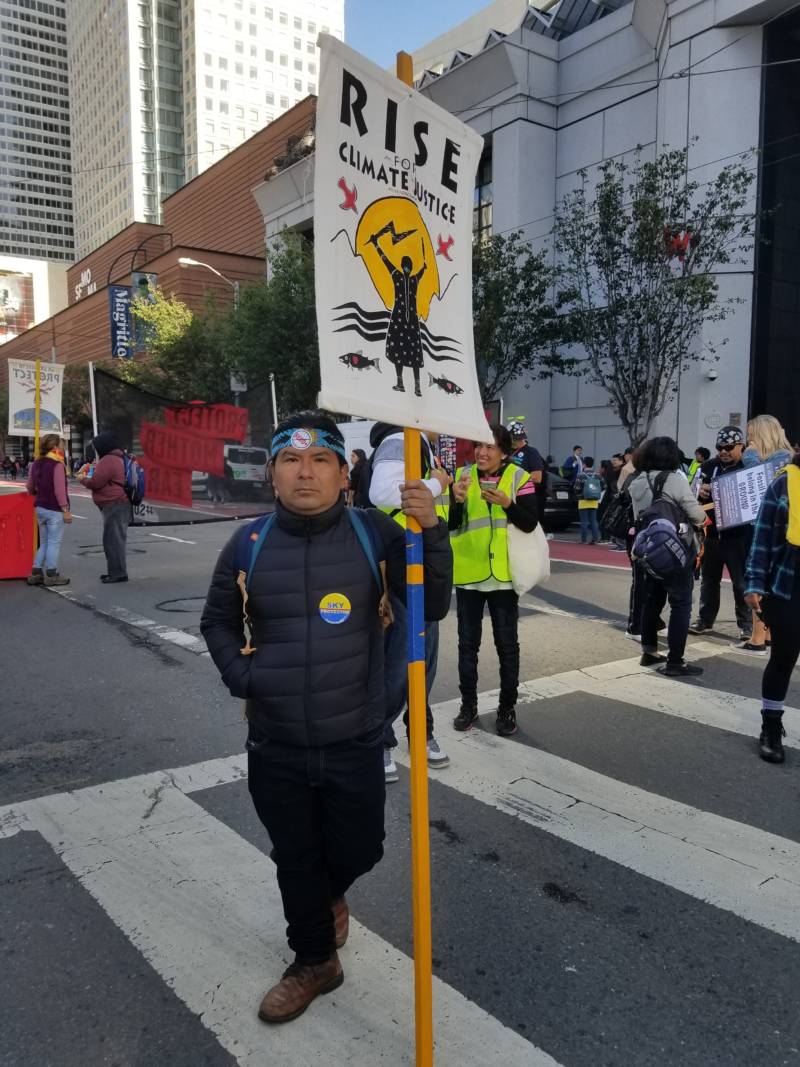
He says although his group never entered the summit, they still accomplished their goal of amplifying criticism of Brown's climate legacy.
"We're out here trying to raise our voices to the governor who has been very resistant to taking on the oil industry," he said.
Activists also opposed market-based approaches to addressing climate change, such as California's cap-and-trade program.
There were fake mini oil rigs, which moved up and down to the rhythm of chanting as people locked arms through mock oil drums to block an entrance to the Moscone Center, site of the summit.
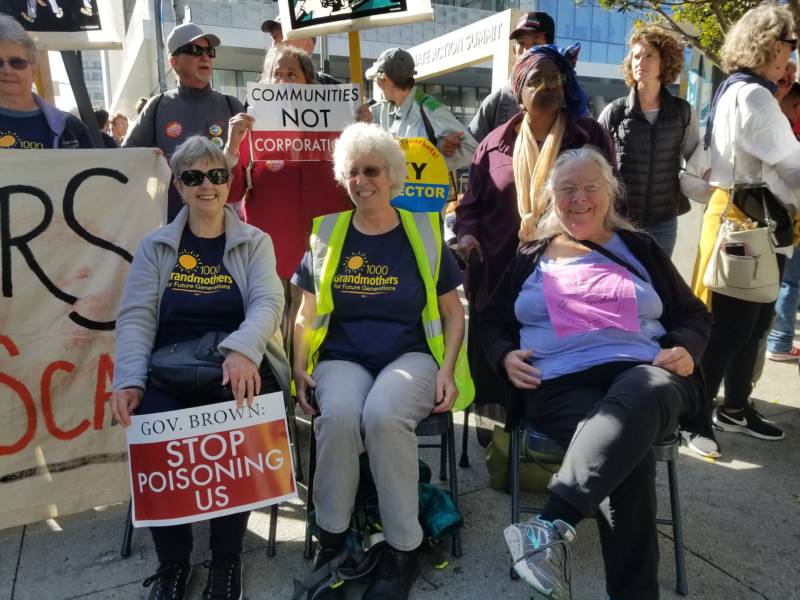
Indigenous activists were prominent at the event -- from Nevada and Arizona, as well as international delegations from Canada and the Ecuadorian Amazon, and beyond.
